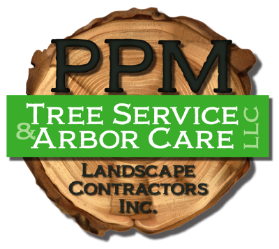Now that the holidays are over and winter is in full swing, you may have just realized you’re out of ice melters. Keeping your paved surfaces clear of dangerous ice is an essential part of landscape maintenance. Running to the store in the middle of a blizzard is not fun. Instead, you can do yourself a favor and bring the de-icers to your doorstep with bulk delivery from PPM Landscape Contractors, Inc. There are many types of products and compounds to choose from. Here are a few of the most common varieties.
Common Types Of Ice Melters
Many people aren’t aware there are several kinds of ice melters to choose from. Some are safer for use around pets. Some work better when temperatures are below zero. Each chemical formula has pros and cons to consider.
Sodium Chloride (NaCl)
Pros
Sodium chloride is the go-to for many Michiganders. It’s the compound that goes by the generic “rock salt.” Good ole rock salt will do just fine when weather temperatures stay above 15 degrees Fahrenheit. So what makes this choice so popular? Believe it or not, it lowers the water’s freezing temperature point. Yes, really! Under normal circumstances, water will turn to ice at 32 degrees Fahrenheit. The water will remain liquid with rock salt unless the outdoor temperature reaches the single-digit range. If you’ve ever noticed how perfectly snow and ice-free your neighbors’ driveway is, it’s probably because they’ve applied rock salt, and all the moisture has run off the pavement.
Cons
Sodium chloride does its job so well that it can be corrosive for pavement, wooden decks, and other surfaces. You should take care not to over-apply it, and if you got a new driveway, sidewalk, or porch poured last year, wait until the surface is a bit older before using sodium chloride.
Calcium Magnesium Acetate (CMA)
Pros
CMA is much less corrosive than traditional sodium chloride, and it’s biodegradable, so it’s a safer option for eco-friendly homeowners. Because it doesn’t have any salt in its formula, it’s the most concrete-safe ice melt. This will be the best option if you have a new driveway or pavement.
Cons
Because CMA is typically sold in liquid form, you won’t get that safe grittiness underfoot the way you do with granular de-icers. So if you’re looking for a de-icer that not only melts the ice but also gives you some traction, you might want to consider a granular form of ice melt.
Calcium Chloride (CaCl2)
Pros
While sodium chloride is suitable for temperatures above 15 degrees, it doesn’t fair as well when things get really cold. (Looking at you, Polar Vortex.) Calcium chloride will melt ice faster than other compounds, and it absorbs moisture from its surrounding environment as it melts, causing an exothermic reaction that releases heat. Calcium chloride is non-corrosive, so it won’t harm concrete or cement.
Cons
Since calcium chloride releases heat as it works, it could burn your skin if you touch it. If you have children or pets, it’s something to consider.
Magnesium Chloride (MgCl2)
Pros
If you’re looking for a pet-safe ice melt, you’ve come to the right place with magnesium chloride. It’s far less damaging and corrosive compared to sodium chloride, and you won’t have to worry about skin contact as you would with calcium chloride. This is an excellent option for dog owners who want to protect their puppies’ paws.
Cons
Since this is a gentler form of ice melter, it doesn’t melt ice as thoroughly or quickly as other compounds, so you’ll need to apply more of this product to get the same results.
Ice Melter Forms
In addition to choosing the chemical formula you’d like to use, you should also consider the form your ice melter comes in.
Liquid
Liquid de-icer is excellent for newly poured cement or households with children and pets. CMA is the typical formula sold in liquid form. And as we touch on above, it’s more eco-friendly, so if you’re concerned about rock salt contaminating your grass or garden bed soil, consider a gentler liquid option.
Granulated
This is the most common form of ice melt. In addition to melting the ice, the granules provide traction on paved surfaces. Granules aren’t perfectly round, so they don’t roll down inclines, slopes, and driveways as readily as pellets – more on this in the next section.
Pellets
Unlike granular de-icer, which is irregularly shaped, pellets are about the same size as peas and rounded. They’re great at delving into thick ice, which is excellent for situations where snow has melted and refrozen over existing ice. As the pellets sink, it breaks up all the layers of snow and ice, so after 10 minutes or so, you can easily shovel them away and get right down to the concrete. The only con to pelleted ice melt is that the round particles roll. So if you have a steep driveway or other slopes on your property, the pellets may wind up at the bottom. If this applies to your home, you may want to consider pellets and an additional form of de-icer, so everything is evenly covered.
Get Bulk Delivery Of De-Icers This Winter – Contact PPM Landscape Contractors
When the snow is falling, the last thing you need is to run out of de-icers. And the last thing you want is a trip to the store in the middle of a blizzard. Save yourself the time and stress and let PPM Landscape Contractors, Inc. bring the landscape supplies to you! We offer delivery of bulk 50 lbs. bags of select ice melters so you’ll never run out again. To learn more about this service or schedule an appointment, give us a call at (877) 454-8733, or you can reach us through our online contact form here.
To see photos of our work, be sure to like us on Facebook!
